Are you a freelancer looking to negotiate your rates but feeling a bit uncertain about how to approach the conversation? It's perfectly normal to feel apprehensive, but knowing how to effectively communicate your value can make all the difference. In this article, we'll explore essential tips and strategies to help you present your case confidently and professionally. So, let's dive in and empower you to secure the rates you deserve!
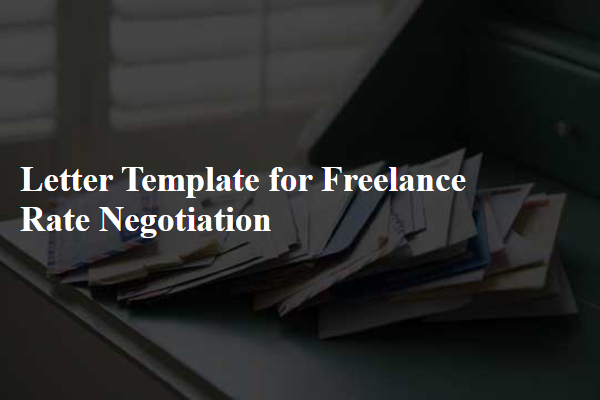
Clear subject line
Freelance rate negotiation requires professional communication and clarity. A well-crafted subject line enhances visibility and sets the tone for the discussion. Examples of effective subject lines include "Proposal for Rate Adjustment," "Discussion on Updated Freelance Rates," or "Request for Freelance Rate Negotiation." A direct subject line emphasizes the intention to negotiate, making it easier for the recipient to prioritize and respond to the correspondence.
Professional salutation
Freelance rate negotiation requires a clear understanding of industry standards and personal value. Freelancers often assess their skills and expertise, factoring in years of experience, specific project outcomes, and the local market rate. For example, graphic design freelancers may reference resources like the Bureau of Labor Statistics which indicates a median hourly wage of $27.34 in the United States. Additionally, considering the complexity of projects can aid in justifying higher rates; a web development project requiring advanced coding may warrant rates of $50 to $150 per hour. Understanding client budgets while asserting one's worth can lead to a mutually beneficial agreement.
Expression of gratitude
Expression of gratitude enhances professional relationships in freelance negotiations. Acknowledgment of previous collaborations fosters goodwill. Thanking clients for trust and support establishes a positive atmosphere. Mentioning specific projects, such as the successful completion of website design for Company X, reinforces appreciation. Highlighting mutual achievements, like increased engagement metrics or exceeding deadlines, underscores the value of the partnership. Gratitude can lead to more open discussions about premium rates, encouraging clients to consider the quality and expertise provided. Respectful communication regarding value can pave the way for successful negotiations.
List of value propositions
Freelance professionals can leverage specific value propositions during rate negotiation to emphasize their expertise and unique offerings. First, extensive industry knowledge, gained from years of experience in sectors like digital marketing, design, or software development, showcases an ability to tackle complex projects. Second, a proven track record of successful projects, evident through portfolio examples, illustrates reliability and potential return on investment for clients. Third, tailored solutions that meet individual client needs can set freelancers apart, demonstrating flexibility and commitment to client objectives. Fourth, strong communication skills, which are vital throughout project management, foster a collaborative atmosphere and enhance client satisfaction. Lastly, timely delivery, exemplified by adherence to deadlines and project milestones, underscores professionalism and can alleviate client concerns regarding project management.
Specific rate proposal
Freelancers seeking to negotiate specific rates should consider factors such as industry standards and project complexity. For instance, graphic designers typically charge between $25 to $150 per hour depending on expertise and region, while web developers may range from $50 to $200 per hour based on skills and technology stacks. Clear articulation of deliverables and timelines enhances the proposal's value. Additionally, setting a minimum project fee, such as $500 for smaller assignments, ensures profitability and aligns expectations. Market research on comparable freelance rates across platforms like Upwork or Fiverr can provide leverage in negotiations. Understanding client budget constraints and articulating the value of experience and quality can lead to mutually beneficial agreements.

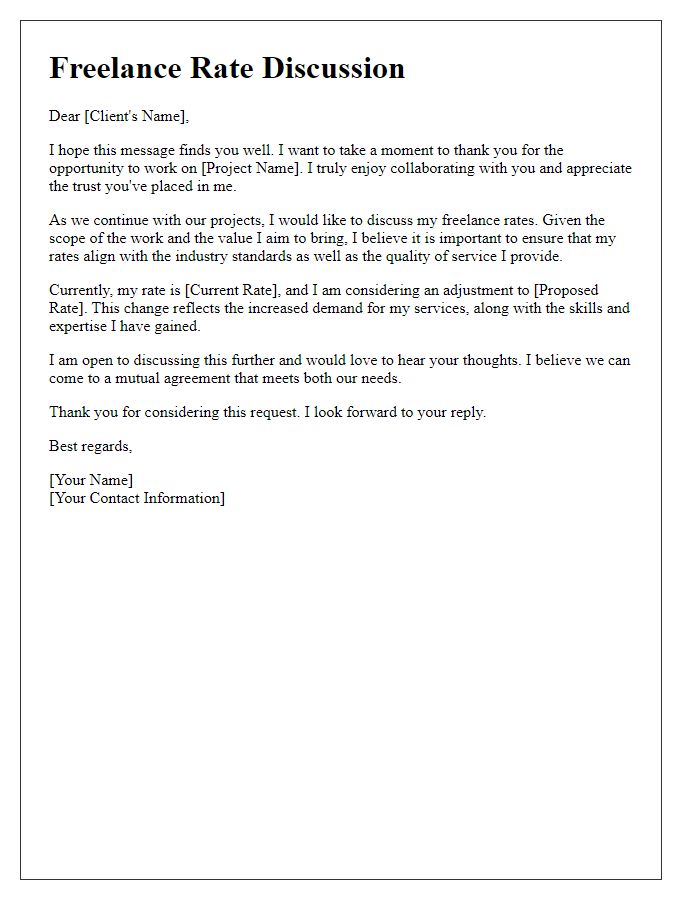
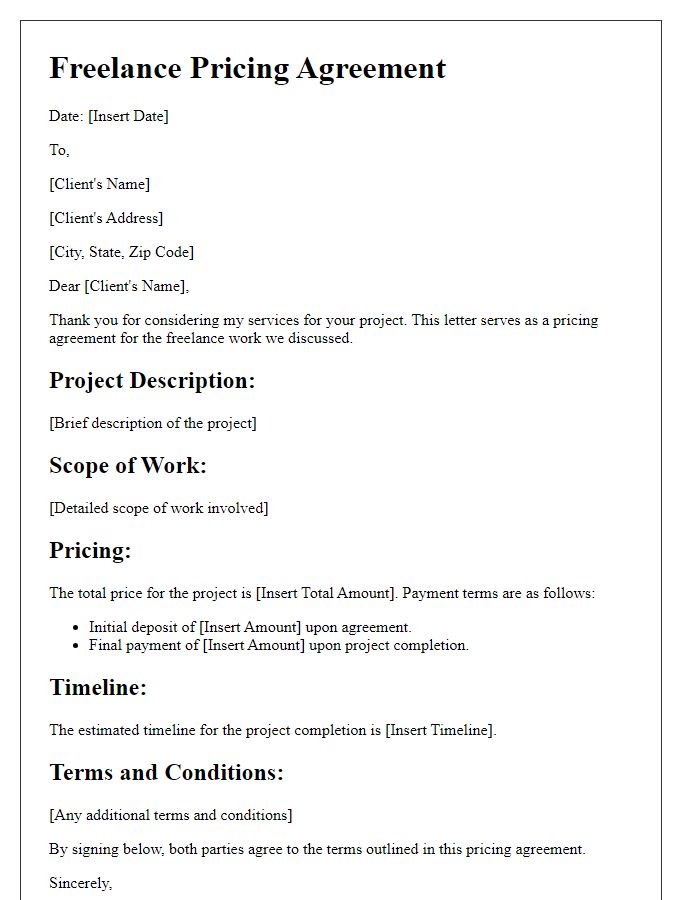
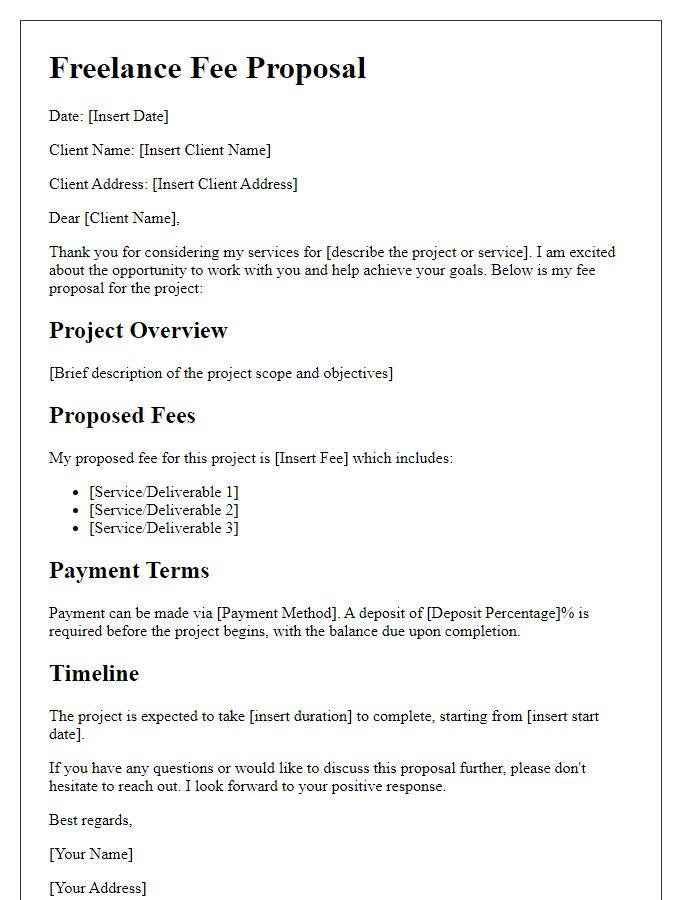
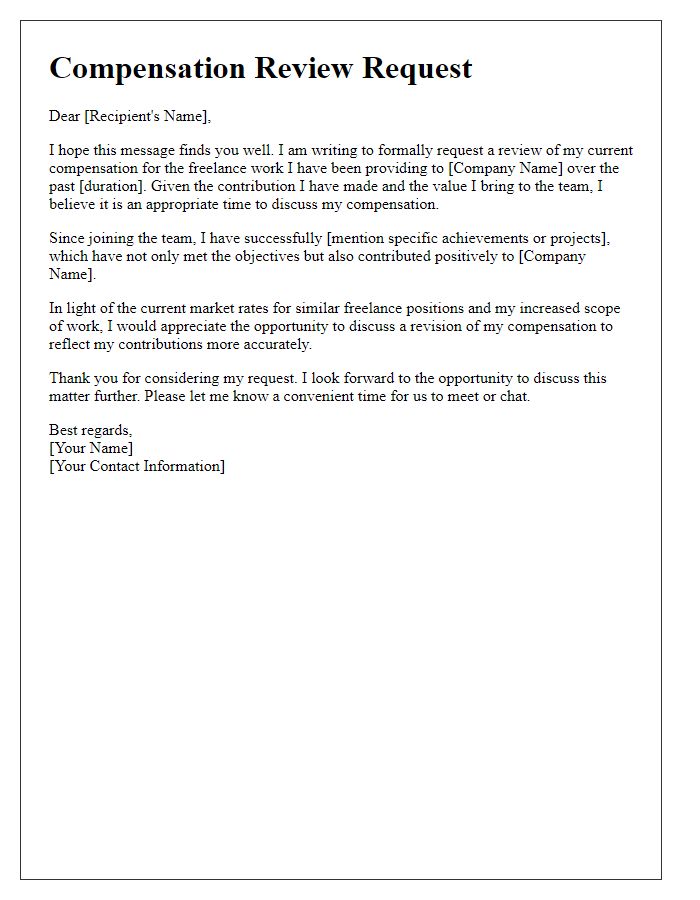
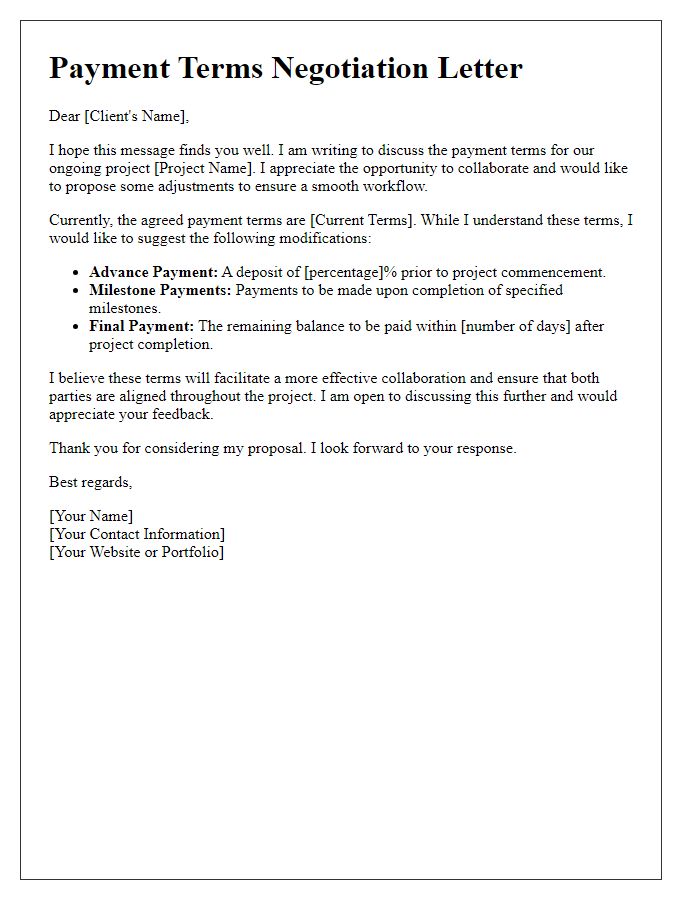
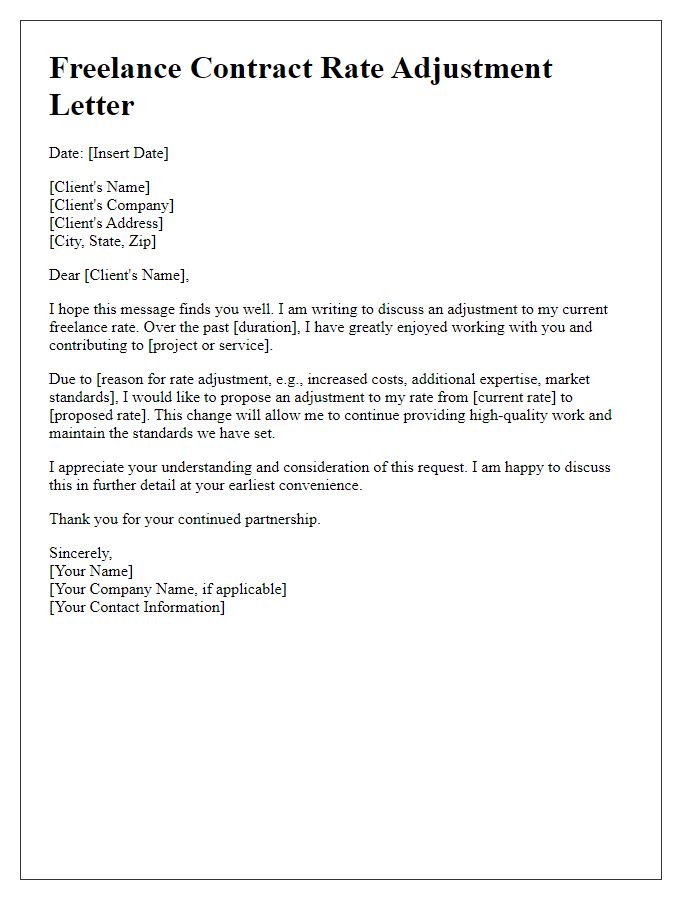
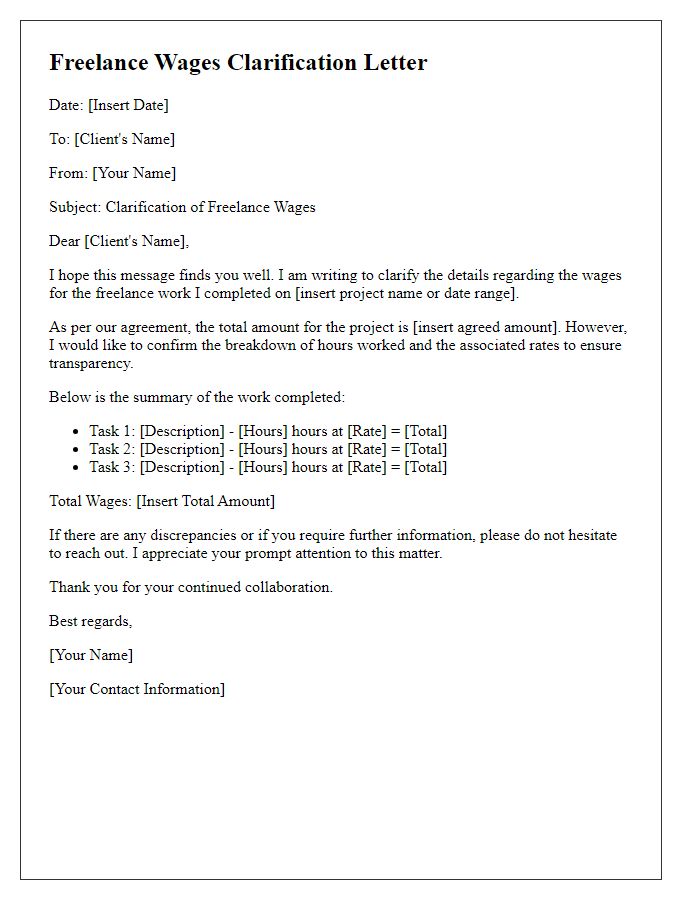
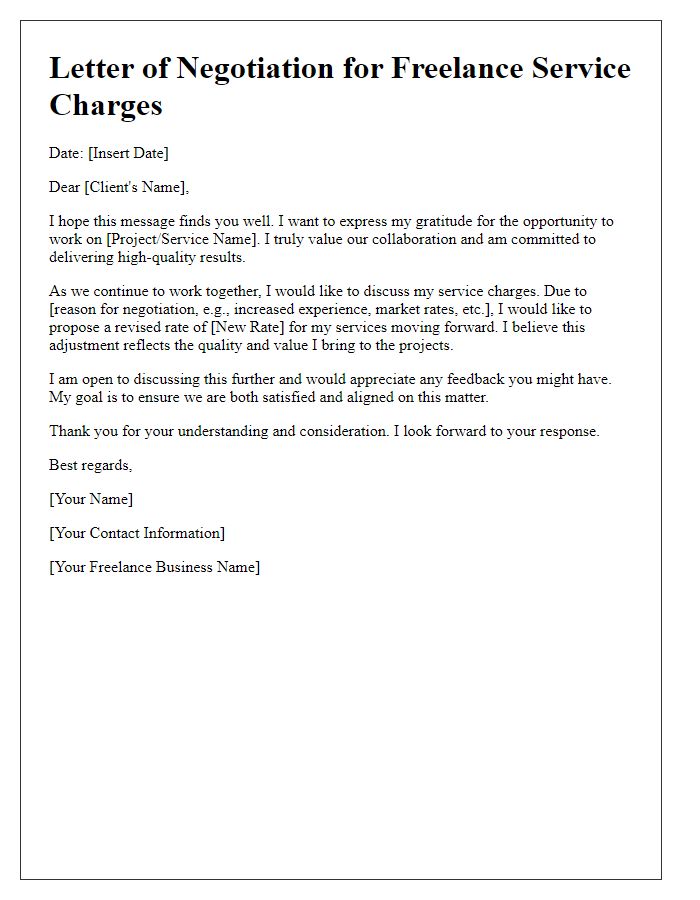
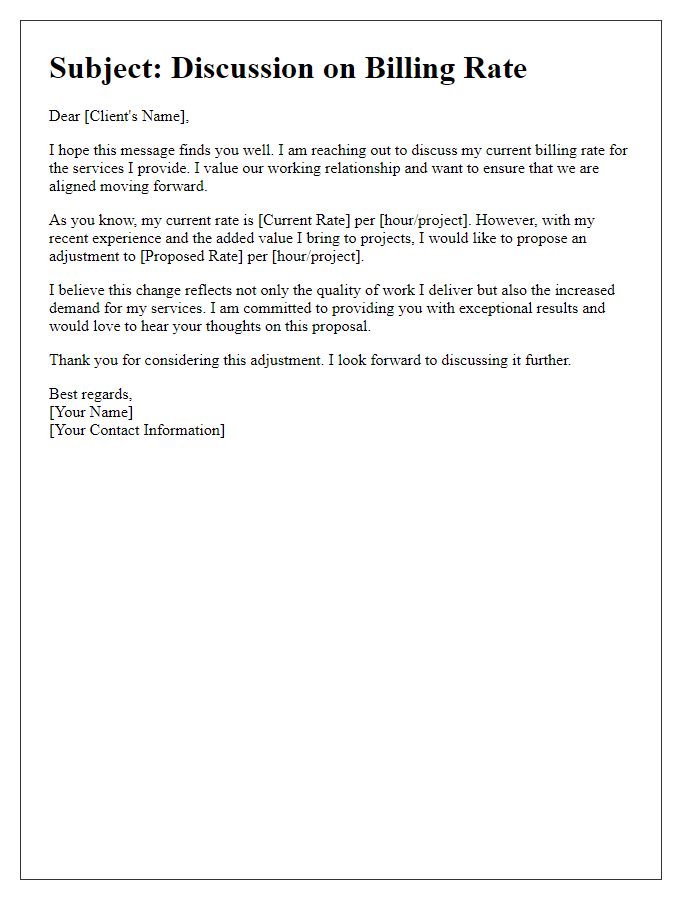
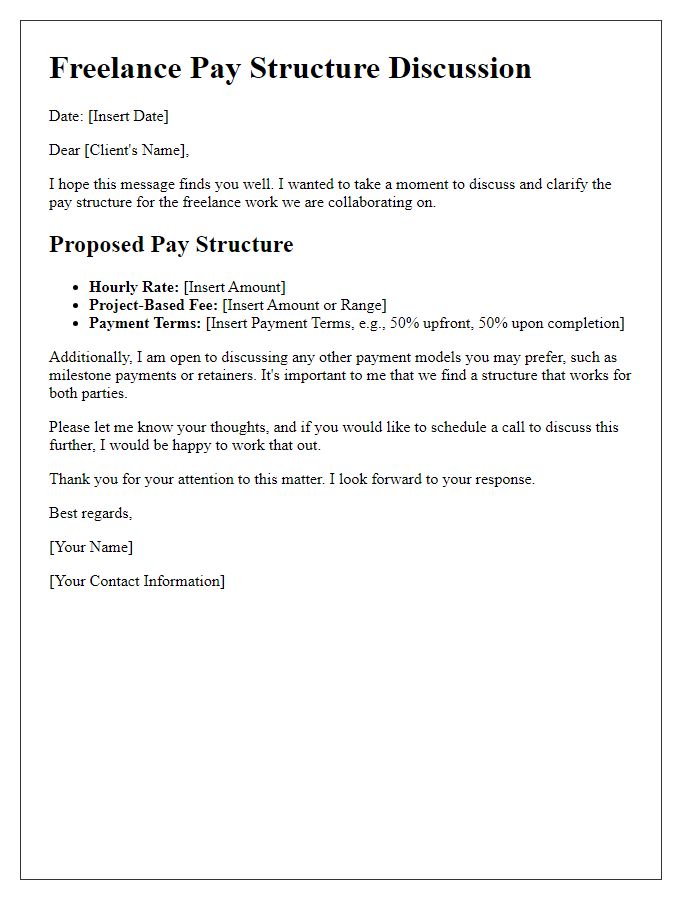


Comments